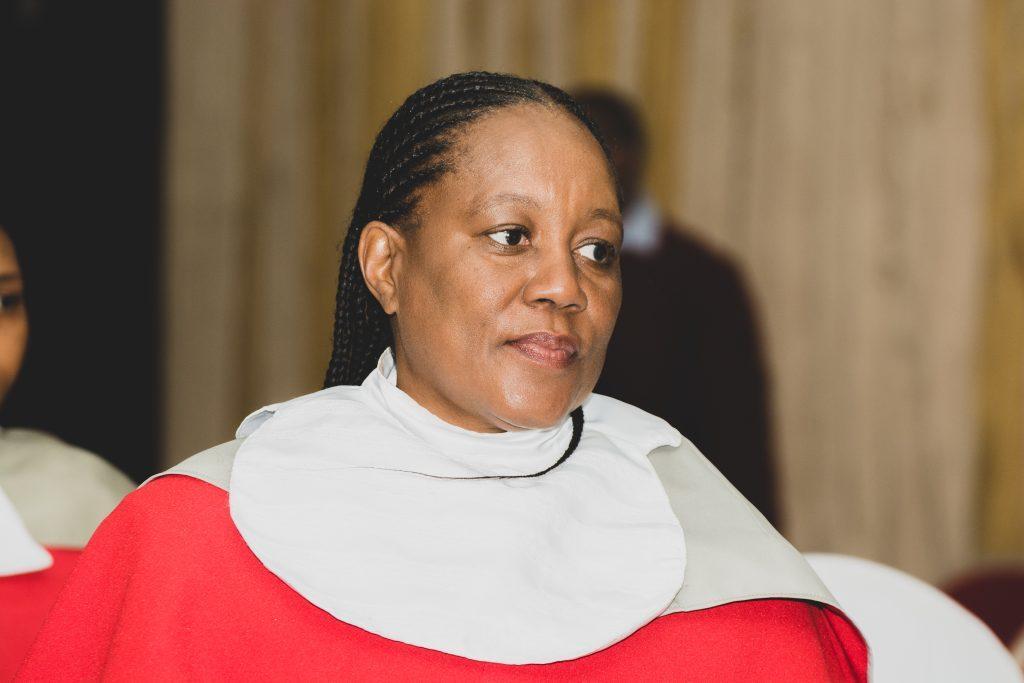Africa-Press – Lesotho. THE High Court will tomorrow sentence two brothers convicted of two counts of murder and attempted murder. Justice ’Mabatšoeneng Hlaele found Rankakata Moiloa and Matanya Moiloa, and a third man from Pae-la-Itlhatsoa in Mokhotlong, guilty of attacking three men using an axe, an assegai and a knife.
The third alleged assailant is still at large. Justice Hlaele heard that the trio attacked and killed two brothers, Teke Chere Letsapo and Realeboha Letsapo 10 years ago.
The Moiloa brothers told the judge that they were walking in the village with no intention of killing anyone but could not properly explain why they were armed.
The case is one of tens of murder cases that Chief Justice Sakoane Sakoane last year said were piling in the High Court. Justice Sakoane expressed concern that the judiciary lacked enough judges to handle murder cases.
Ranked number three in the world in terms of violent crimes by govisafree. com, Lesotho is also said to be one of the most dangerous countries in Africa.
A local anger management and therapist, Botle Sebusi, says violent crimes in the country are mainly caused by unresolved anger issues that result from a person’s environment, stress, financial issues, abuse, poor social or familial situations among others.
“If one is dealing with a lot of problems in their life, they end up being angry more easily, leading to unnecessary fights which leads to homicide,” Sebusi says.
“One of the causes is being discriminated or injustice,” she says.
“Experiences of racism can make one feel so angry that to end lives is the only solution to them,” she says.
Sebusi says capital murder (murder in the first degree that is punishable by death) is one of the reasons why Lesotho is ranked high in homicide cases in the world.
“The criteria in capital murder includes being paid to commit murder, killing a person while escaping from prison or within the confines of a jail, killing a child or peace officer or multiple murders,” she says.
“It can also include a murder that is committed while committing another felony such as robbery, sexual assault or kidnapping.
She also says some killings are caused by “negligence rather than recklessness” in that “actions were unreasonable and resulted in the death of an individual, while a reasonable person would have taken more caution”.
“In Lesotho, homicide is caused by a mix of factors at the individual relationship, community and society level such as poverty, economic inequality, ethnic fractionalisation and the availability of guns and alcohol.
” She also says “transitions in political regimes may be associated with increased homicide in the country”. Sebusi is a counsellor assisting people with anger issues, marriage counselling, trauma and stress.
Makhetha Mpota, a Maseru-based counsellor, accused political party leaders of being close to violent gangs to an extent that their ordinary followers have started glorifying violent crimes.
“Some of these violent criminals feel that they are immune because their political parties are ruling,” said Mpota, adding that “they only realise that they lack that immunity when their parties lose power”.
“Our politicians are openly associating with dangerous people and as a result a lot of people feel unprotected against vicious gangs,” he says.
“They end up believing in violence as the only justifiable and acceptable protection against violent criminals whom they believe are protected by politicians.
A 2021 report on International Religious Freedom in Lesotho cites the Christian Council of Lesotho (CCL) as raising increasing concern among religious leaders over crime in the country.
The interpersonal violence among primary health care patients in Lesotho: A qualitative study of the reasons for assault, published in January this year, says substance abuse, including alcohol, “has been linked to interpersonal violence, but other socio-economic factors, cultural and traditional practices may also influence the perpetration of violence”.
In 2002, a qualitative study was conducted to explore the experiences of physically-assaulted victims of interpersonal violence at a local clinic in Leribe.
The study found that aggravating factors for interpersonal violence included jealousy, unemployment, availability of weapons, substance abuse and poor levels of education.
It also found that interpersonal violence was ameliorated by family interventions, reporting to authorities, seeking protection from assailants and religious assistance.
“Most interpersonal violence occurred during the night and on weekends,” the study found. It called for the enactment of legislation and establishment of community peace groups to protect victims.
For More News And Analysis About Lesotho Follow Africa-Press






